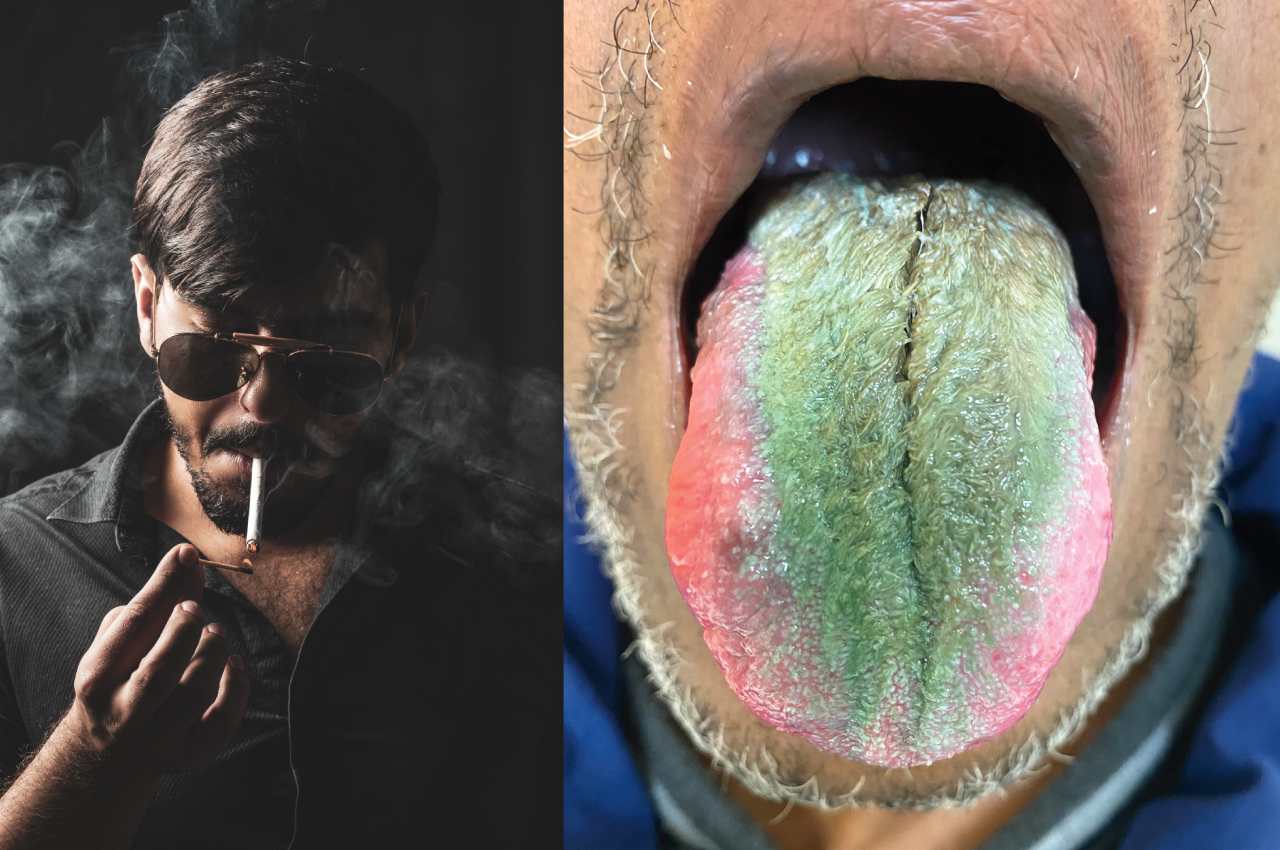New Delhi: In a shocking and bizarre medical case, a man developed a condition known as “green hairy tongue” as a result of his smoking addiction. This unusual condition, characterized by a greenish discoloration and an overgrowth of elongated papillae on the tongue’s surface, highlights the detrimental effects of smoking on oral health and sheds light on the lesser-known consequences of tobacco use.
What Lingua Villosa Nigra?
Green hairy tongue, also referred to as lingua villosa nigra, is a relatively rare condition characterized by the abnormal appearance of the tongue. It occurs when the papillae, tiny projections on the tongue’s surface, grow longer than usual and become discolored. In the case of the man with a smoking addiction, his habit contributed to the development of this condition.
Causes and risk factors
The exact cause of green hairy tongue is not fully understood, but several factors contribute to its development. Poor oral hygiene, certain medications, tobacco use (particularly smoking), and the use of certain mouthwashes or antibiotics are known to increase the risk. Smoking, in particular, exposes the tongue to toxins and substances that can disrupt the natural balance of bacteria in the mouth, leading to the overgrowth of papillae.
Impact on oral health
While green hairy tongue is generally considered harmless, it can cause discomfort and aesthetic concerns for individuals affected by the condition. The overgrown papillae can trap bacteria, debris, and pigments, resulting in a greenish or dark discoloration. In some cases, this may also lead to bad breath or a metallic taste in the mouth. Proper oral hygiene practices, along with addressing the underlying cause, can help alleviate the symptoms and restore normal tongue appearance.
Smoking and oral health
The case of the man developing green hairy tongue due to his smoking addiction highlights one of the many negative impacts of tobacco use on oral health. Smoking not only stains the teeth and causes bad breath but also increases the risk of various oral diseases, including gum disease, oral cancer, and tooth loss. Quitting smoking is essential for improving overall oral health and reducing the risk of such conditions.













